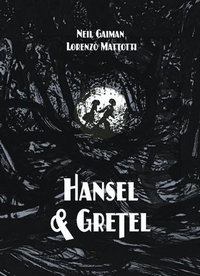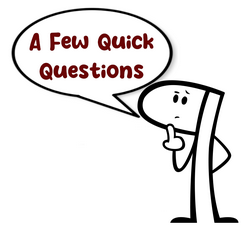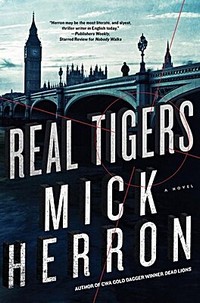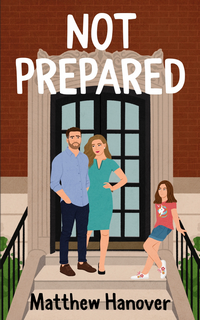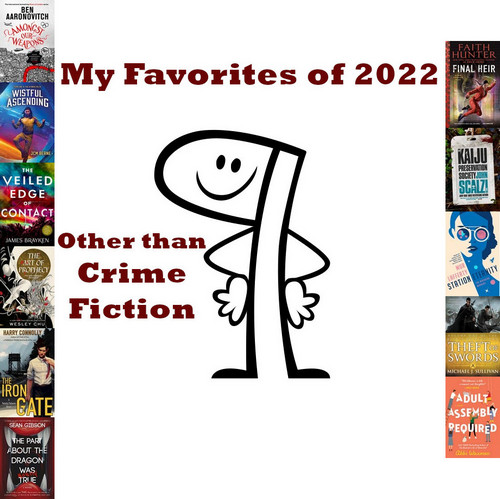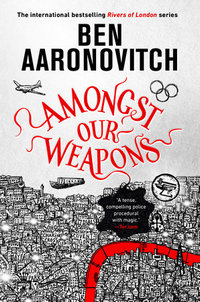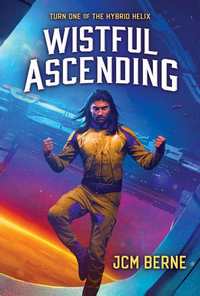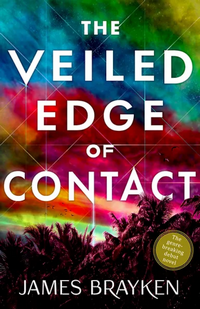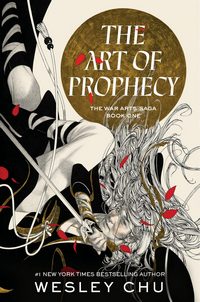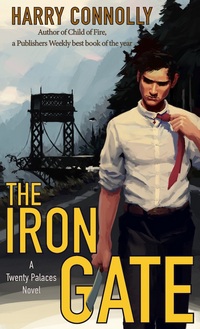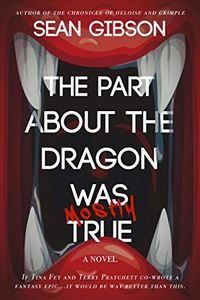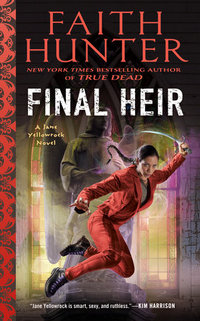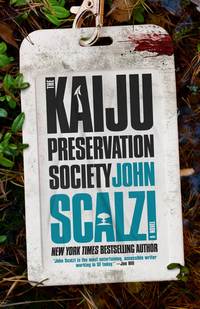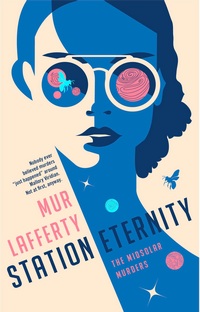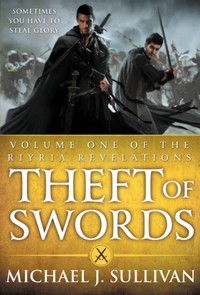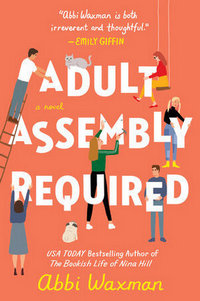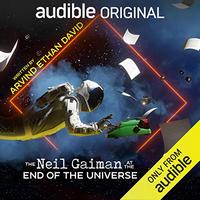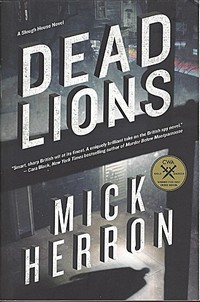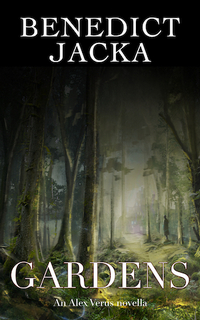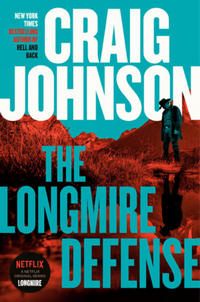 The Longmire Defense
The Longmire Defense
DETAILS: Series: Series: Walt Longmire, #19 Publisher: Viking Publication Date: September 5, 2023 Format: Hardcover Length: 351 pg. Read Date: September 9-11, 2023

I paused as Dorothy Kisling, the owner and operator of the Busy Bee Café, sidled up to the table, pen and pad in hand. “Howdy. Whose murder?”
I sat my menu back on the table and looked out the window at the ducks treading water in Clear Creek. “An old one.”
“What, you’re running out of current ones?”
“Thank goodness.”
What’s The Longmire Defense About?
While out on a search and rescue hunt for a woman who hit snow she wasn’t ready for, Walt comes across a place his father had told him about—the place where his father saw his first dead man. That’s the kind of story that sticks with you, I’d imagine. At the time, it was ruled an accidental death, but no one ever figured out who had shot the man. Shortly after encountering the woman he was looking for, Walt’s dog finds a gun that had been tucked away for years—the kind of gun used in that accident. Assuming it wasn’t an accident (and the way the gun was left at the scene, that seems likely), Walt suspects the men who were hunting with the dead man. Except, of course, his father.
One of those men in the hunting party was Walt’s grandfather, Lloyd. Walt narrows in on him almost immediately as a suspect and charges into the investigation—not to clear him, either. It’s not long before Walt starts to uncover a motive for the killing—and it suggests something far bigger than one murder—and maybe to criminal activities that are continuing today.
Meanwhile, the woman who was stuck in the snow keeps getting into trouble. Walt does what he can to help her, but is so focused on the cold case that he maybe doesn’t do everything he could for her. It’s understandable, but it rankles me (and probably will bother Walt once he realizes it)
In the end, Walt’s past—and his family’s past—and future collide in a way that will leave him knowing much more about his family than he expected to learn.
Off His Game?
Walt’s still recovering from the injuries suffered in Hell and Back, technically, right before Hell and Back and this is really his return to work. He needs to shake a little dust off to return to form. That’s derailed as soon as he uncovers that rifle and connects the crime with his grandfather. He also has to deal with a personal issue or two, a personnel issue or two, and some other changes (including the return of an old friend to town—not all of the distractions are negative)
We’ve known for some time that the relationship between Walt and Lloyd wasn’t good—Walt clearly holds a great deal of resentment (to maybe understate it) toward his grandfather. But it’s here that we really dig into things—but I don’t think we get to the bottom of it all. Walt rarely has seemed so determined to prove something—perhaps forcing clues to lead to a conclusion.
Because of these distractions, he’s missing some things—he certainly doesn’t handle things as well as he could with a couple of personal items. The contemporary crime he’s confronted with really could’ve used more attention, and I’d like to think he’d typically give it that focus, and prevented some of the worst outcomes. But he’s so preoccupied with his grandfather and what might have happened in the past…
Walt’s human. He makes mistakes. He holds grudges. We know this—but it’s not often we see it placarded like this. Anyone tempted to hero-worship the Absaroka County Sheriff should get disabused from that by this book. It’s the way he reacts to these errors that will tempt the reader back toward the idolatry (however tarnished).
Saying Goodbye
Wow, there’s a lot of goodbyes to take in over the course of this novel. Some are said, some are implied, and others just happen. Absaroka County won’t look the same after The Longmire Defense
Okay, maybe it’s not saying goodbye in every case. I guess there are several points along the way that make this more of a “Death Card” in tarot (at least as far as I understand it)—there are a lot of phases of life that close here. Many things change. Careers, families, and so on.
Johnson isn’t letting anything like a status quo settle in with the series—and for book 19, that’s great to see. It’d be really easy for him to coast along and just keep getting the team back together for another adventure like one or two they’ve had before. Instead, Johnson moves several characters in new directions, introduces someone we may see a lot more of, and makes sure we see parts of Walt we’ve never seen before (whether or not we may like those parts).
Ummm…What?
When you read this from start to finish, everything works—you’re going to be into it and will be enjoying yourself. Once everything is over, you’re going to look back over things and think of one scene/event and it’ll be jarring. In retrospect, I absolutely don’t understand it. I wonder if one of the people involved could’ve used some therapy leading up to it—and one of them might need a little after it. I’d seriously like to ask Johnson what he was thinking when he wrote it (and why his editors let it stand).
Once you’ve read this book, and are wondering what I’m talking about, feel free to send me a message to see if I’m talking about what you’re thinking I am. (you’re probably going to be right)
So, what did I think about The Longmire Defense?
The snow dropped down to about six inches and I couldn’t help but feel good chugging along with the rays of the sun warming my back and doing one of the things I really enjoyed: putting a little effort out to help someone. I sometimes wondered how I’d ended up being a sheriff—if it had simply been the path of least resistance from being a marine investigator in Vietnam, becoming a deputy when I’d gotten back stateside, and then eventually running for the office. I like to think it was more than that, and the thing I usually settled on was being of assistance when people needed it the most.
I know it sounded corny in the modern era, but it was what I was good at, something I did well.
Yeah, maybe corny, but it makes me feel better to think that there are people out there like this.
I’ve been up and down when it comes to this series since Depth of Winter—The Longmire Defense is an up— big up. I think it’s entirely possible when I reread this (and I will) that I’ll wonder why I only gave it 4 Stars (but then I’ll remember that therapy-inducing scene and a couple of other things).
The character work was fantastic—for Walt, Henry, and Sancho in particular, along with the rest of the regulars and all the new characters, too. The murder investigation (not-really-a-spoiler to say that) was intriguing, and the lengths people went through to cover up the details of the related crimes were astonishing (until you realized what the related crimes were, anyway). The final reveals and ultimate resolution to that story were fantastic.
Early on, I sent a message to a friend who’s had to delay reading the book saying, “I know exactly when you’ll be texting me.” And it has nothing to do with anything associated with that case. Rather it’s one of the Death Card moments. That one in particular, but all of them, were just so well-written and timed that long-time readers will love them (even if they’re not crazy about what they mean long-term). New readers to the series will pick up on a lot of the weight thanks to Johnson’s writing, and won’t feel lost, either. They just won’t get it all, as you’d expect.
I thoroughly enjoyed the read—it’s one of those that you don’t want to end because you’re having so much fun, but AAAARGH! you just have to know how it all gets resolved ASAP. I hope this is a true return to form for the series*. If not, I’ll love that we got The Longmire Defense. I strongly recommend this to Longmire fans new, old, and yet to start.
* I’m going to keep reading them regardless, it’ll just be nicer for me if it goes this way.

This post contains an affiliate link. If you purchase from it, I will get a small commission at no additional cost to you. As always, the opinions expressed are my own.
![]()



